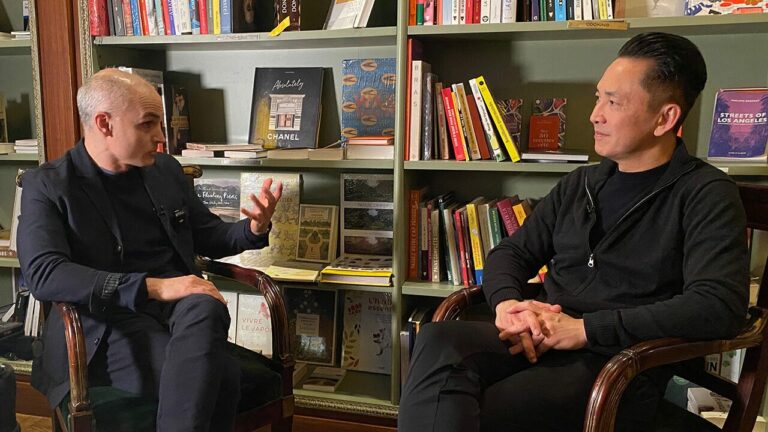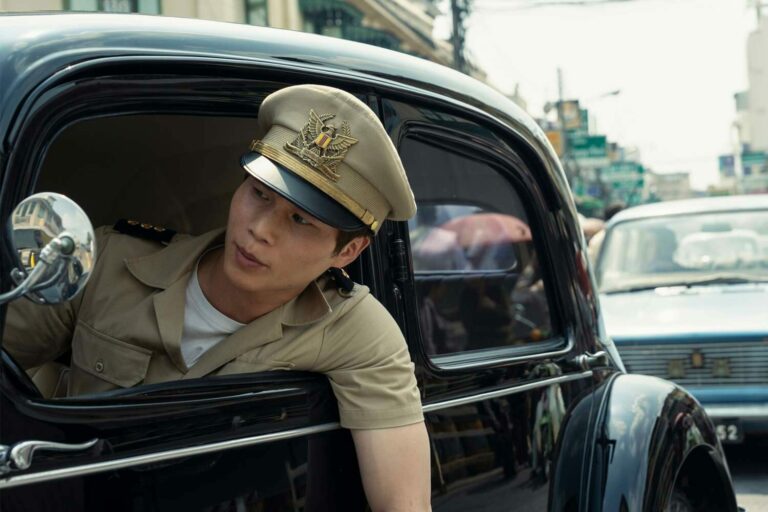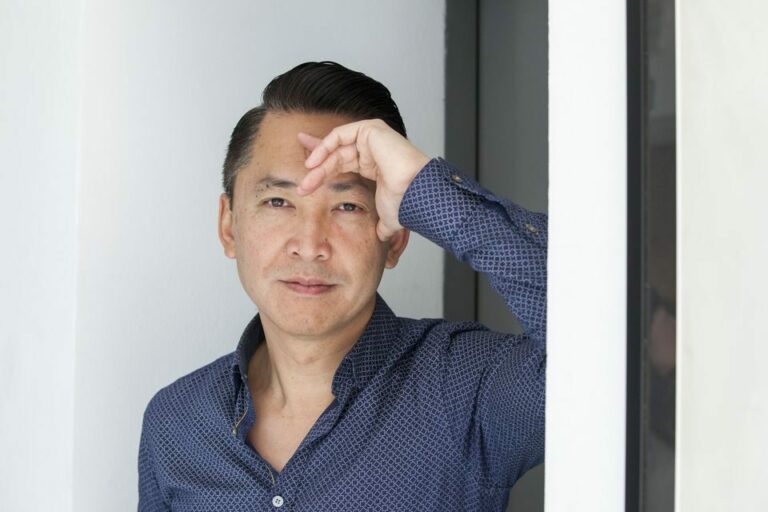Peter Larsen interviews Viet Thanh Nguyen for the Orange County Register. You can read about Part 2 of the interview here.

Viet Thanh Nguyen is on the kind of roll any author might envy. “The Sympathizer,” his 2015 debut novel, won the Pulitzer Prize for fiction. Last year his nonfiction work, “Nothing Ever Dies: Vietnam and the Memory of War,” was a finalist for the National Book Award.
Now comes a short story collection titled “The Refugees,” which arrived last week to great anticipation, which makes Nguyen, who will be featured in the Register Book Club’s next forum on Tuesday, a very hot writer indeed, though he laughs as he explains that this seeming flurry of rapid activity actually has been gestating for years.
“It’s an illusion because these books were written over 17 or 20 years,” says Nguyen by phone from Washington, D.C., where he was attending a writers conference between stops on his book tour. “They just happen to be coming out at the same time.
“I’d have preferred it had been every five or six years, but there is something to be said for just throwing the books out there all at once to get people’s attention.”
Especially, we suppose, when the attention has been so uniformly positive on the manner in which Nguyen, 45, has artfully presented new stories about the Vietnamese experience, from the war years to the scattering of refugees when it ended in 1975 and tens of thousands – including the 4-year-old future author and his family – were resettled in the United States.
Nguyen’s books touch on the kinds of common human experiences that any immigrant or refugee might go through, which with his own life’s story gives him a particular insight into the current debate over such matters. And their freshness to readers comes partly from the fact that Nguyen’s perspective on Vietnam, the war and the people, represents a shift in perspective from the American observer to the Vietnamese.
“Even before movies, the first thing that I saw that signaled to me that how I thought about Vietnamese people was not the same as how other Americans thought about Vietnamese people was in San Jose, when I was very young,” says Nguyen, whose family after initially being resettled in Harrisburg, Pa., moved to Northern California.
“My parents had opened perhaps the second Vietnamese grocery store in the city, and one day I was walking near their store and in another store window I saw a sign that said, ‘Another American driven out of business by the Vietnamese.’
“I thought, ‘Well, this is not my perception of things,’” he says. “And that sense that there were Americans out there who thought we were a danger to them was reinforced when I began reading American accounts of the war and watching American movies.”
Nguyen, who is a professor of English and American studies and ethnicity at USC, describes how he first saw the movie “Apocalypse Now” when he was 10 or 11, and how alien it seemed to the stories that his parents and others in the Vietnamese American community told about the war.
“After watching I think just about every American movie ever made about the Vietnam War, and reading a lot of the important fictional accounts, I realized that in these accounts at best the Vietnamese were usually voiceless and there to be rescued or killed, and at worst they were gooks,” he says. “And I understood that it was this version of American images of the Vietnamese that led directly to seeing that sign in the storefront.
“So I’ve always seen my writing as an attempt to both counterattack the stories that we see on page and on screen, and to counteract their manifestation in the real world in things like that racist sign.”
“The Sympathizer,” which tells the story of a North Vietnamese spy working with a South Vietnamese general, both during the war and after in California, grew directly out of that feeling that within many Vietnamese Americans there is a duality – “a double consciousness,” as Nguyen says the African-American scholar W.E.B. Du Bois wrote years ago, by which a member of a minority group “sees himself through his own eyes and then through the eyes of white people as well.
“So in my novel I set down that idea by Du Bois because I thought it was true of my own condition, and turned that into a statement for my character as a man who is divided in many, many different ways,” Nguyen says.
The short story collection “The Refugees” presents more of these kinds of moments, as its characters deal with the uncertain lives they’ve found, lives for which they are grateful, often while struggling to reconcile present with past. In the story “War Years,” which Nguyen says is the only autobiographically inspired work he’s ever written, that conflict is played out in ways familiar to any community with a large population of Vietnamese Americans, where some would just as soon forget the war while others simply can’t.
In many ways his books speak to the current controversies over banning immigrants and refugees from various countries or faiths, and connects it to similar tensions throughout American history.
“It is very American to welcome in immigrants and refugees,” Nguyen says. “We have a strong tradition of doing that. But at the same time we also have a very strong tradition of xenophobia and racism that is not an accident, not an aberration; it’s actually fundamental to American history and the American character.”
He mentions such moments in our history as the Chinese Exclusion Act of 1882 or the internment of Japanese Americans during World War II as well as the most recent examples of the ban on immigrants and refugees sought by President Donald Trump but for now halted by the courts.
“When California was actively against the Chinese in the 19th century, they thought the Chinese were an existential threat to American culture,” Nguyen says.
“So it’s not new. Only now, 150 years later, and we think, ‘Oh, the Chinese are actually very assimilable, and of course they’re a model minority.’ We’ve almost totally forgotten that there was once this very strong hatred against the Chinese.”
To that end, Nguyen says Americans need to remember this past as well as the nation’s history of opening its arms to welcome the world, before more immigration is shut off.
“We have to recognize this for those of us who are in favor of immigration, in favor of letting in refugees,” he says. “To point out to people that this ban against Muslims is not simply going to stop with them. It’s just the opening salvo.”


